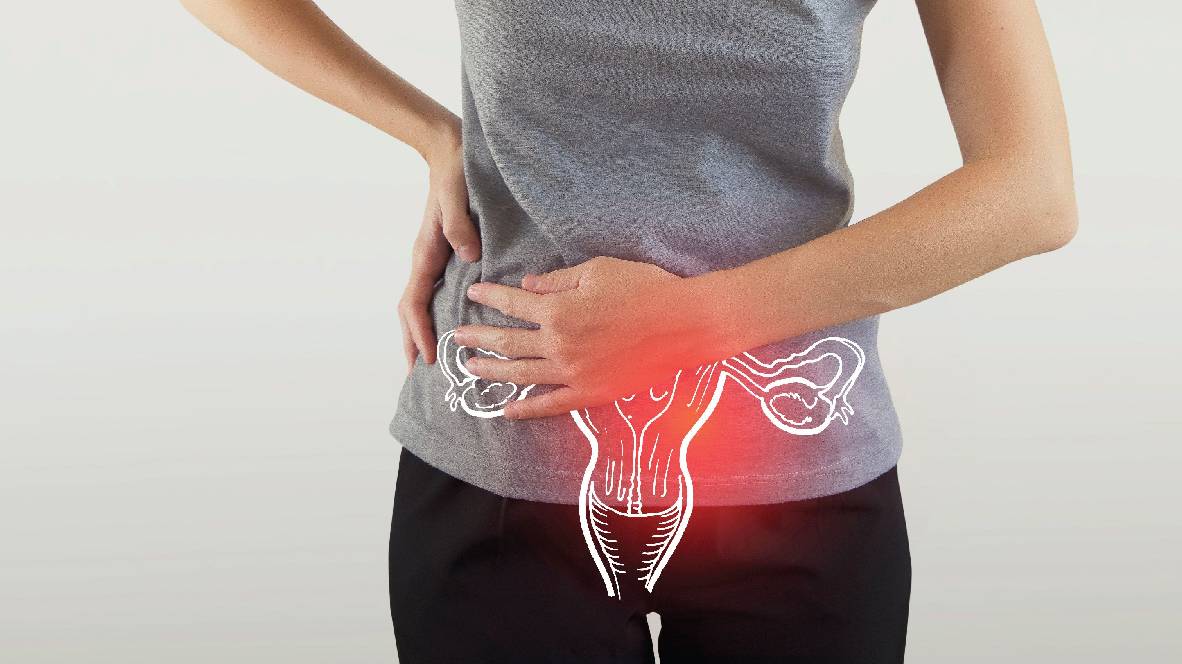PCOD, Menstrual Problems

Women with PCOS are more likely to develop certain serious health problems. These include type 2 diabetes, high blood pressure, problems with the heart and blood vessels, and uterine cancer. Women with PCOS often have problems with their ability to get pregnant (fertility).
Polycystic ovary syndrome (PCOS) is a set of symptoms caused by a problem with a woman’s hormones. It affects the ovaries. These are the small organs that store a woman’s eggs. But it can also affect the rest of the body. PCOS is a very common condition in women of childbearing age. In some cases, it can lead to serious health issues if not treated.
PCOD is a condition where a woman’s ovaries produce an abnormal amount of androgens, leading to the formation of small cysts on the ovaries.
Ovulation happens when a mature egg is released from an ovary. This happens so it can be fertilized by a male sperm. If the egg is not fertilized, it is sent out of the body during your period.
Causes
In PCOD, many small sacs fill up with fluid inside the ovaries. Each of these contains an immature egg that never triggers ovulation. The absence of ovulation leads to a hormonal imbalance with a high release of male hormones. Research hasn’t pointed out the exact reasons why PCOD problems happen. However, certain factors contribute to it. They are:
- Genetic makeup
- Insulin Resistance
- Obesity
- High levels of inflammation
- Excess insulin
- Excess androgen
- Hormonal imbalance
- Genetic factors
- Insulin resistance
Symptoms
- Irregular Menstruation: One of the most common signs of PCOD is irregular menstruation. Due to a high amount of male hormones, the body prevents ovulation. Many patients of PCOD have fewer than nine periods a year.
- Heavy Bleeding: Since the periods are irregular, the buildup of the uterine wall is more. This leads to heavier bleeding whenever the periods happen.
- Acne: due to higher amounts of male hormones, the skin secretes more oil causing more acne.
- Hair Growth: Most women, who suffer from PCOD, have hair growth on their face, back, stomach and chest. The condition is known as hirsutism.
- Weight: Most women who suffer from PCOD are obese or overweight.
Diagnosing
- Some of the symptoms of PCOS are like those caused by other health problems. Because of this, you may also have tests, such as:
- Ultrasound. This test uses sound waves and a computer to create images of blood vessels, tissues, and organs. This test is used to look at the size of the ovaries and see if they have cysts. The test can also look at the thickness of the lining of the uterus (endometrium).
- Blood tests. These look for high levels of androgens and other hormones. Your healthcare provider may also check your blood glucose levels. And you may have your cholesterol and triglyceride levels checked.
Treatment Options
- PCOD has yet to be identified as a disease with a cure. You may, however, manage the illness with correct treatment and lifestyle changes. Ultrasound and blood tests help to diagnose PCOD.
- Most patients are recommended to lose weight to reverse the effects of PCOD. Lifestyle changes like eating a healthy diet and regular exercise help in the condition.
- Birth control pills and hormonal medication are also used in treating PCOD.
- While there are various lifestyle suggestions for women with PCOD, you are recommended to follow a PCOD diet that is low in fat and carbohydrate.
Prevention Tips
- Healthy diet and regular exercise
- Maintaining a healthy weight
- Regular medical check-ups
